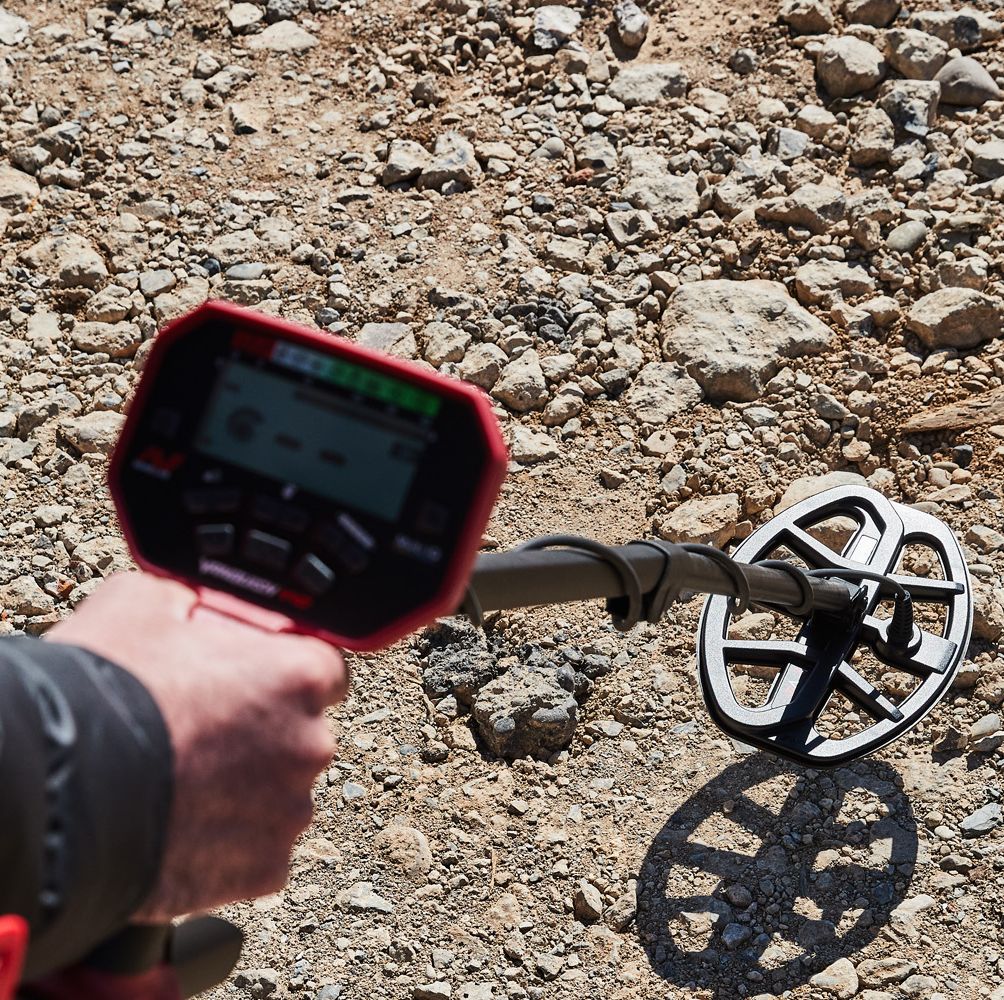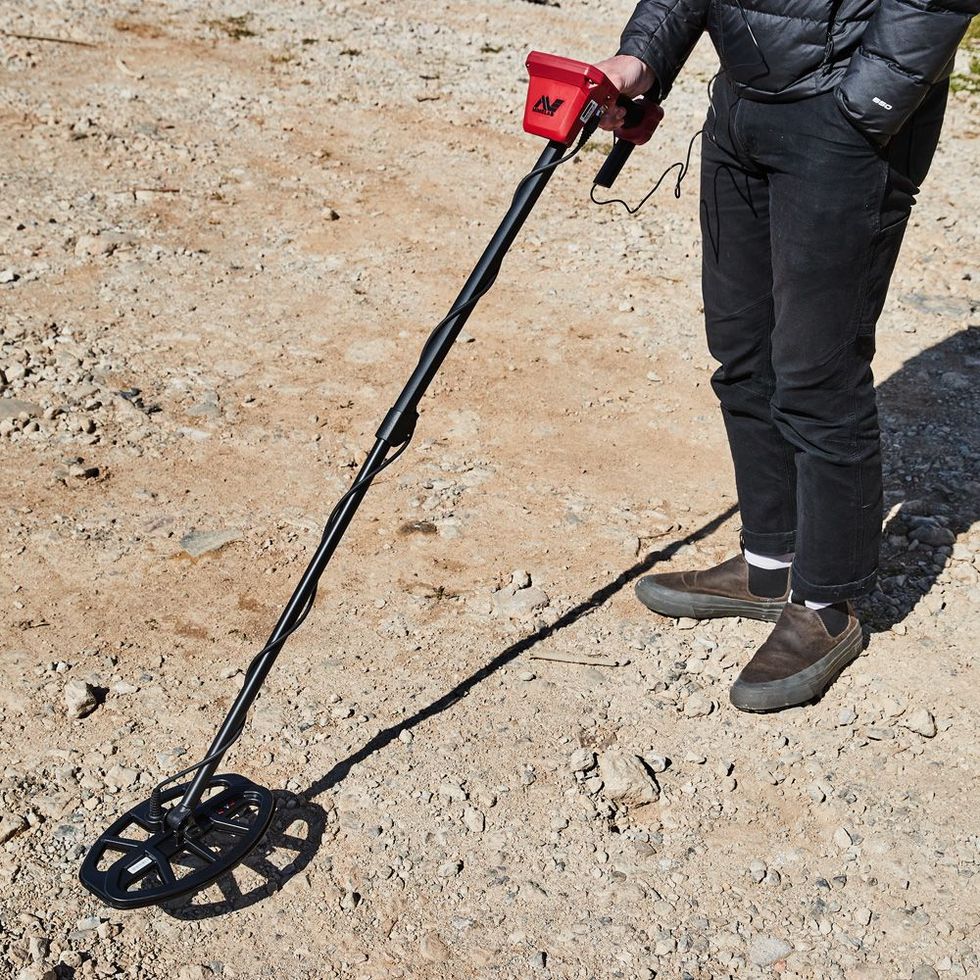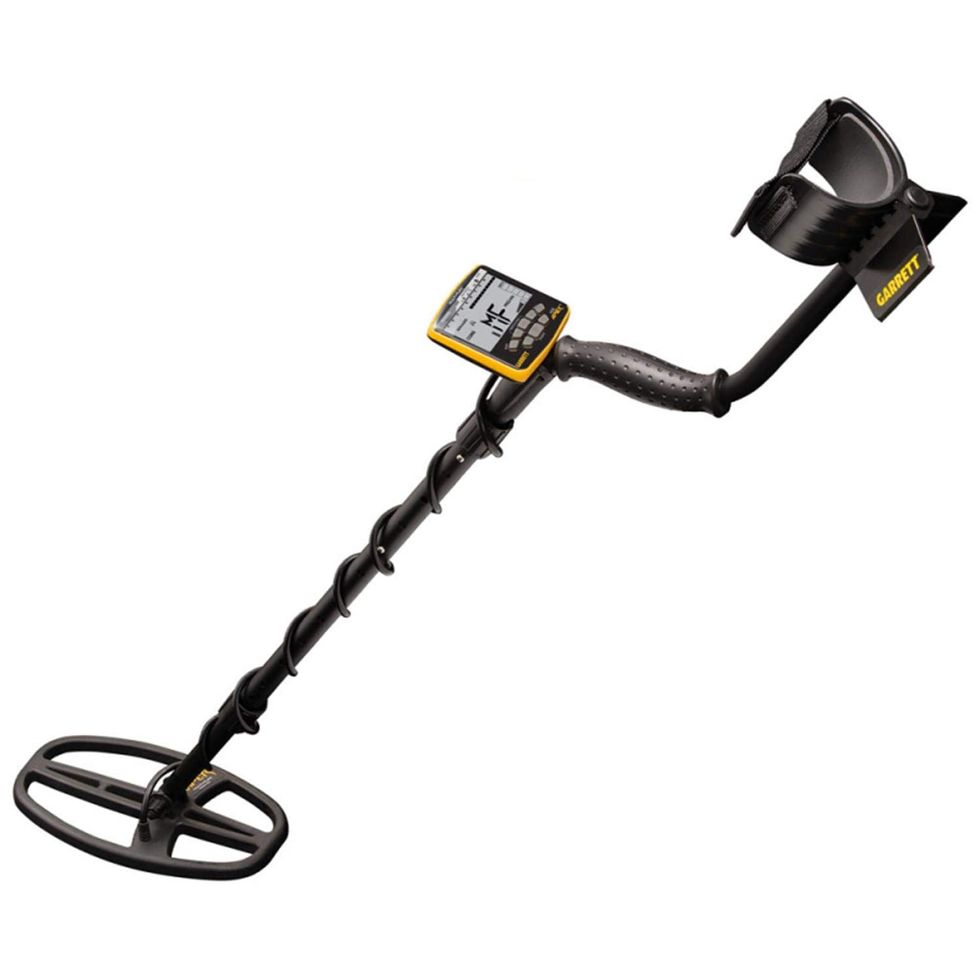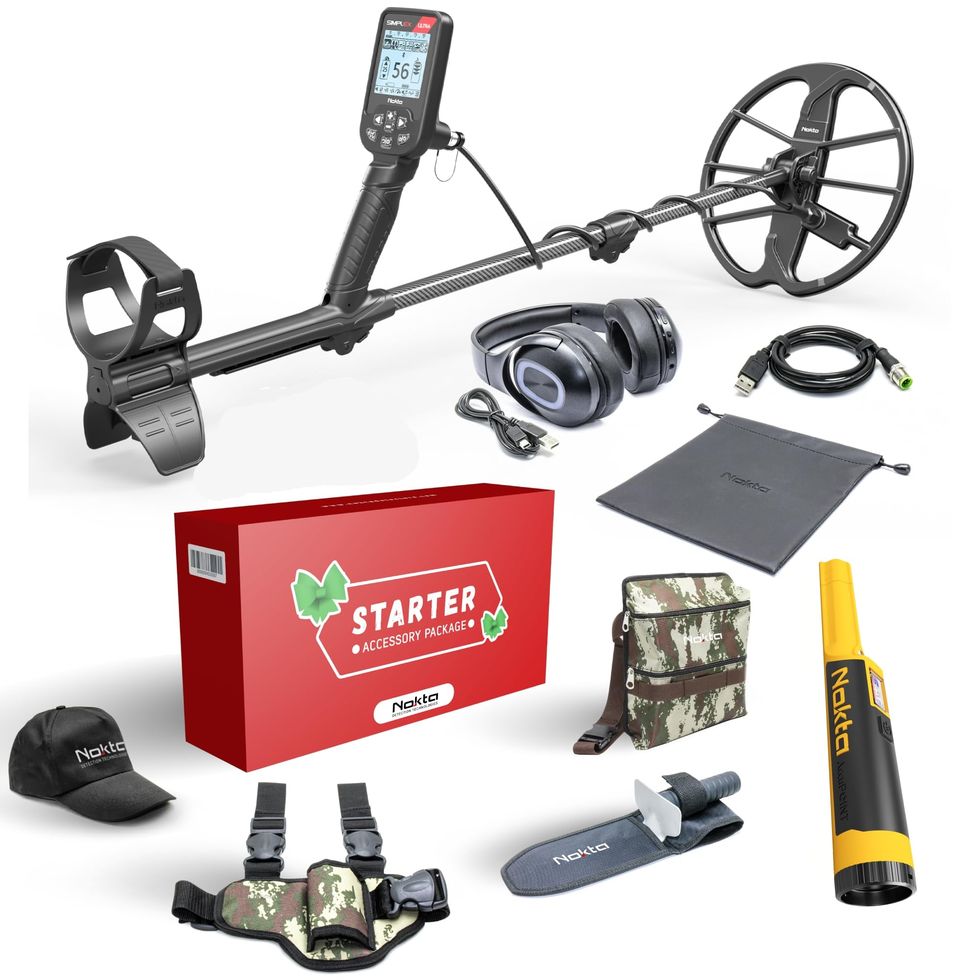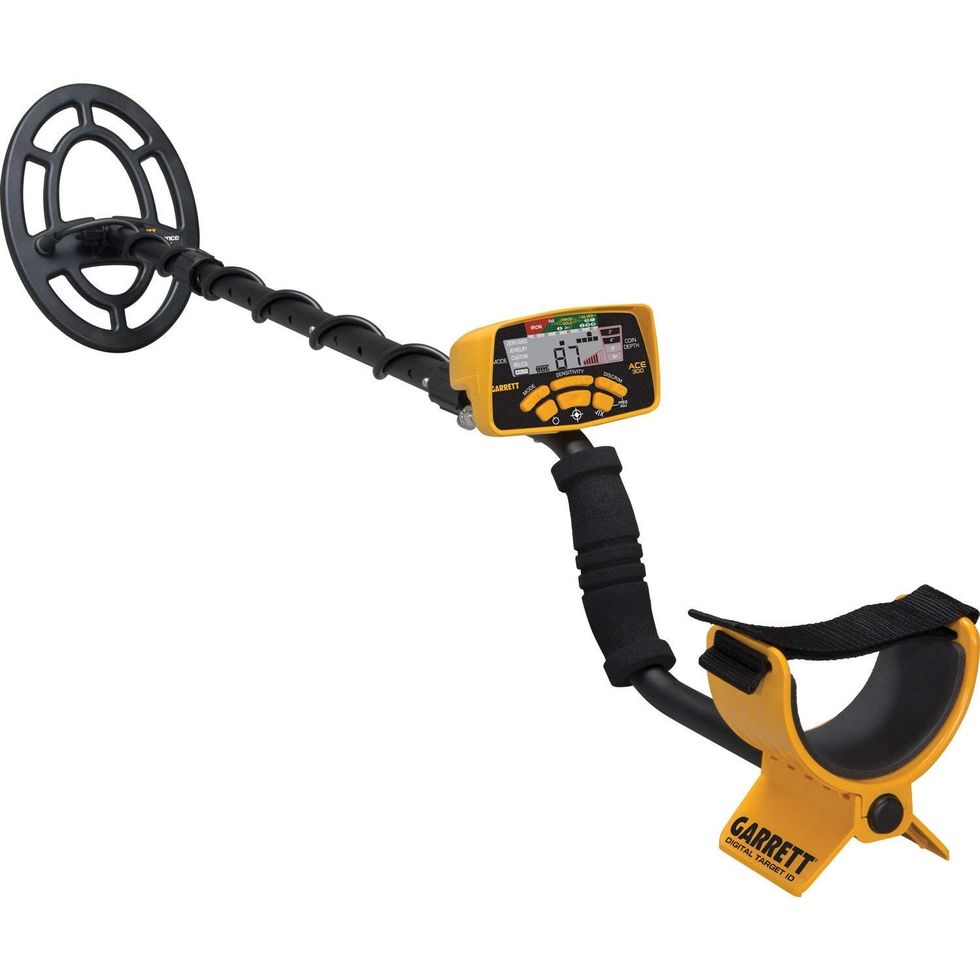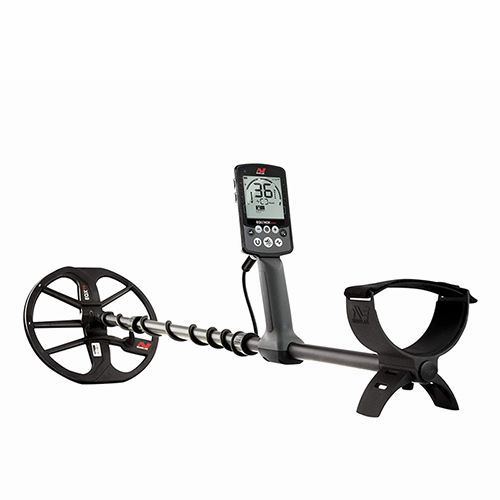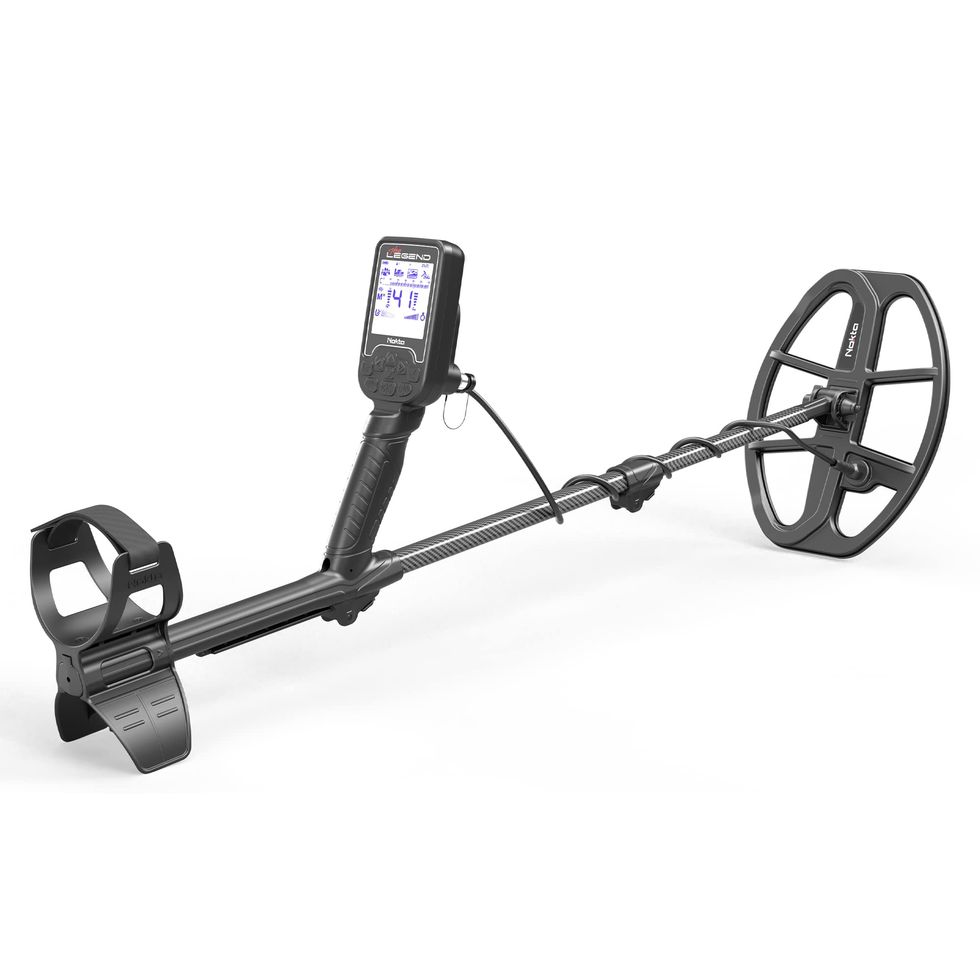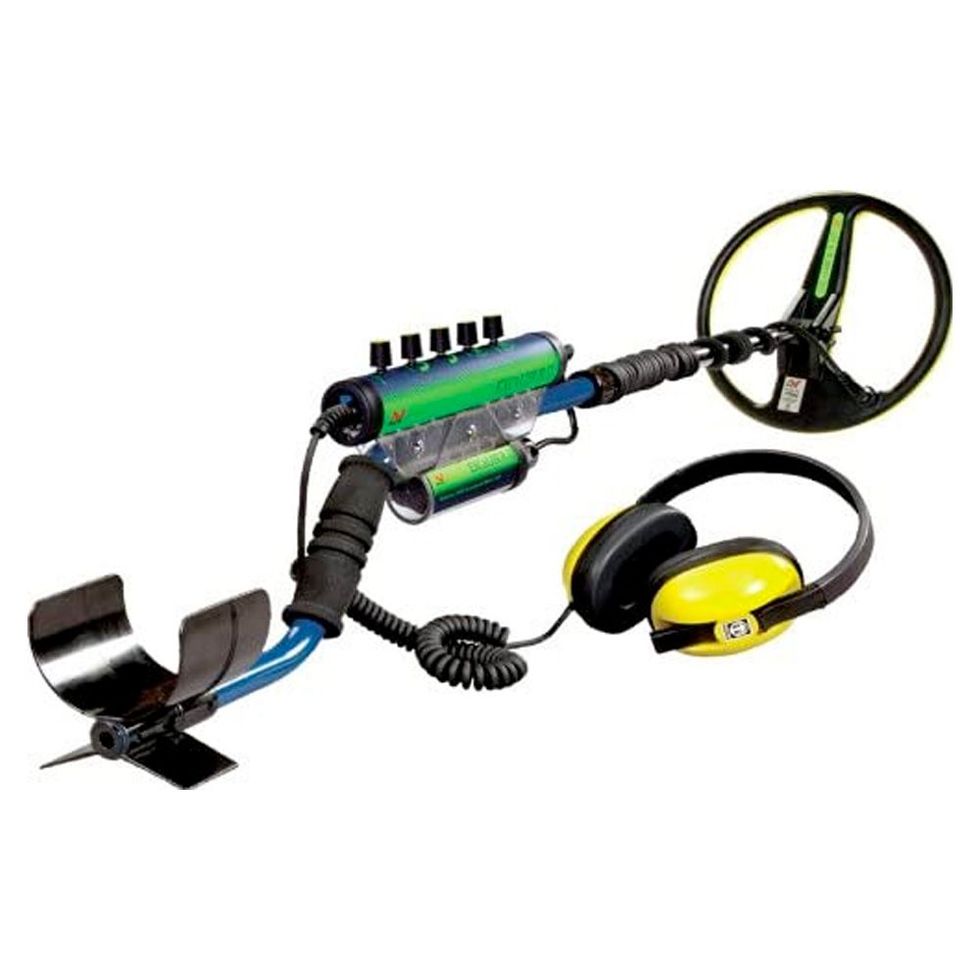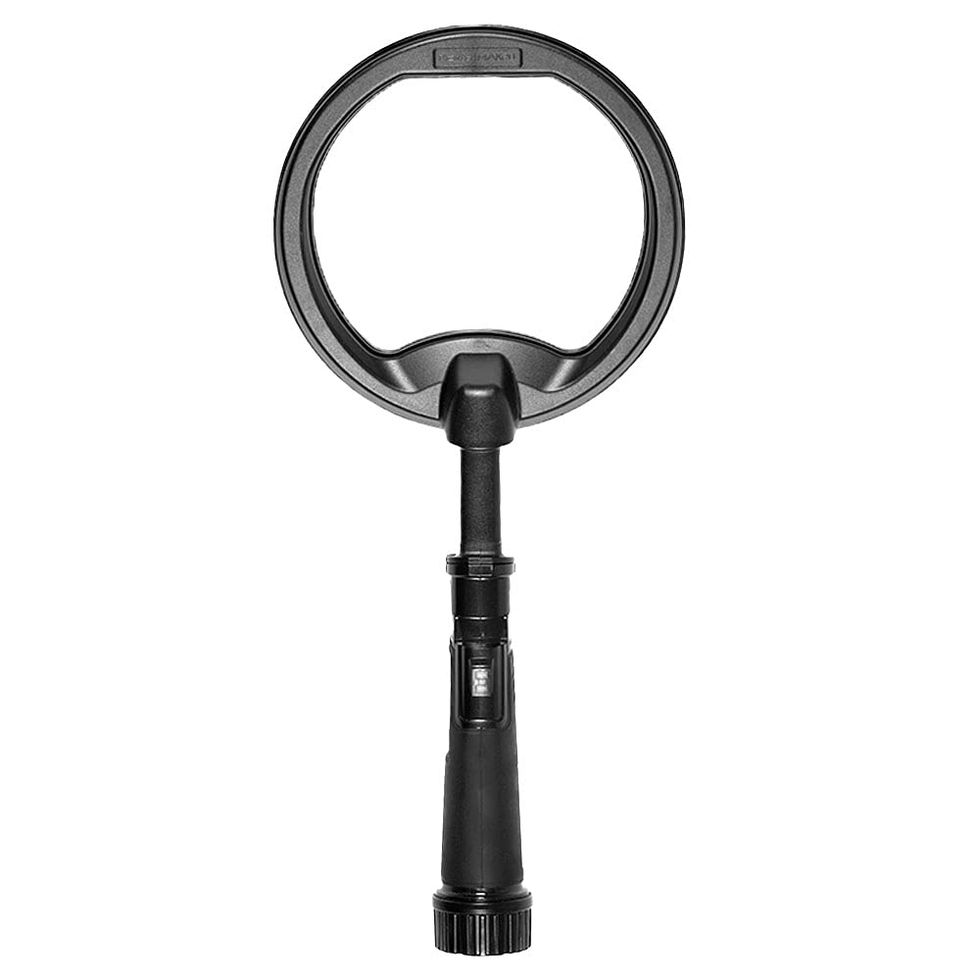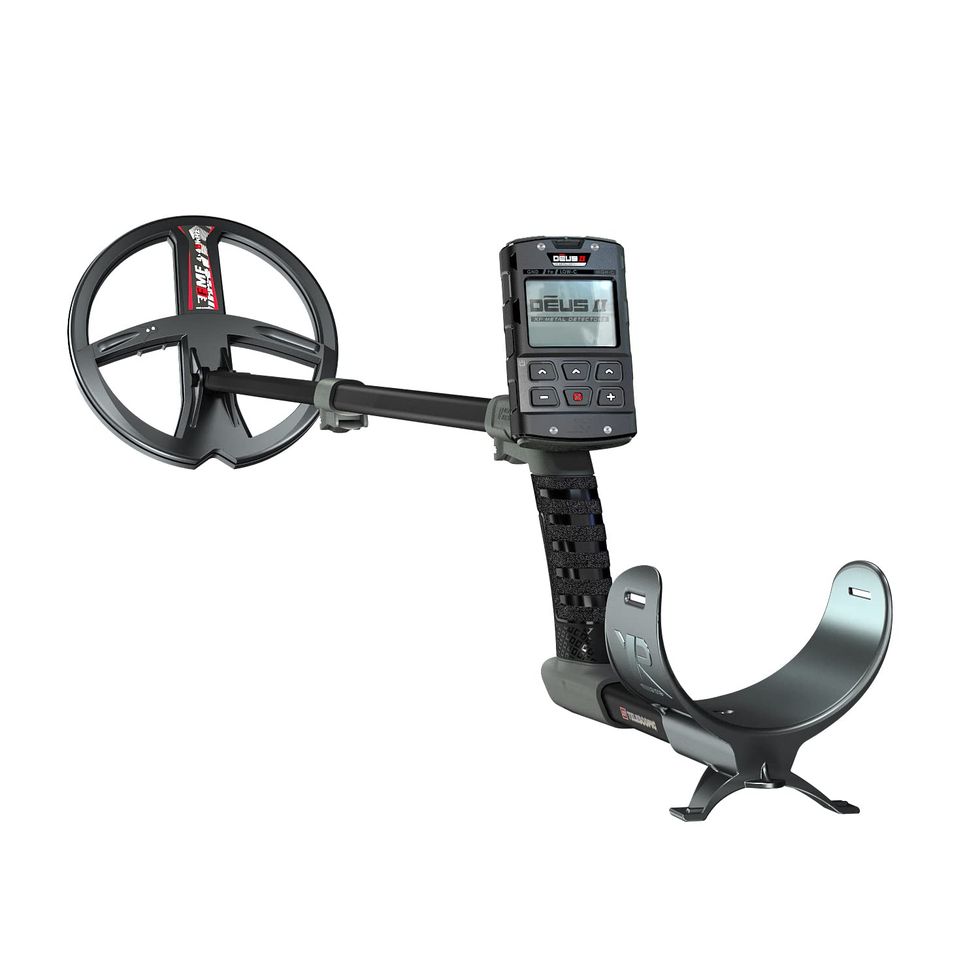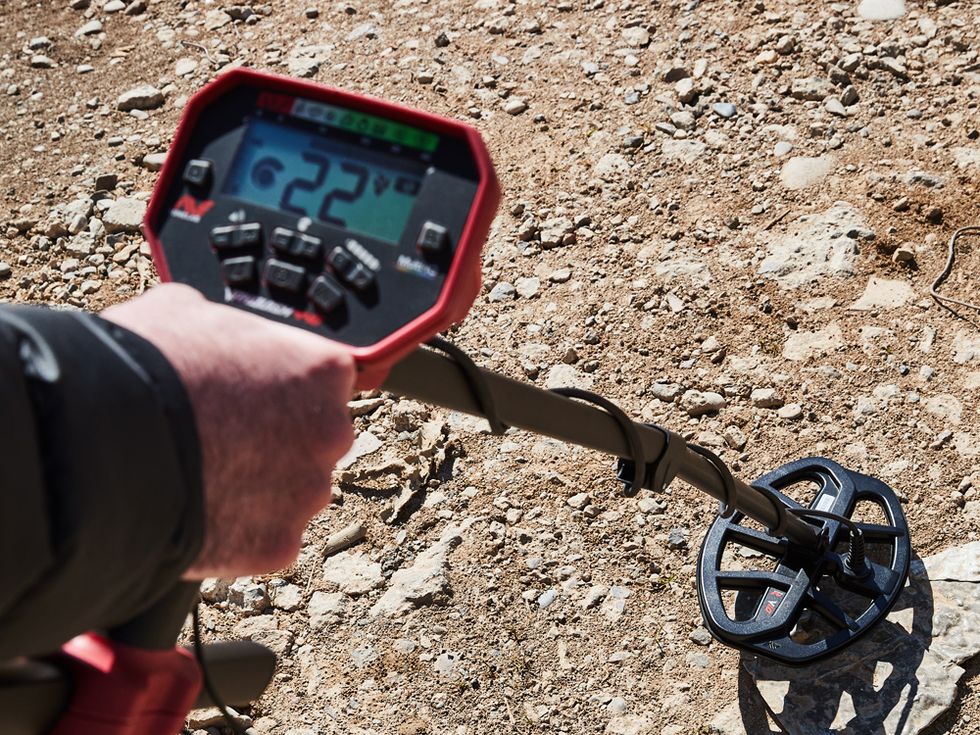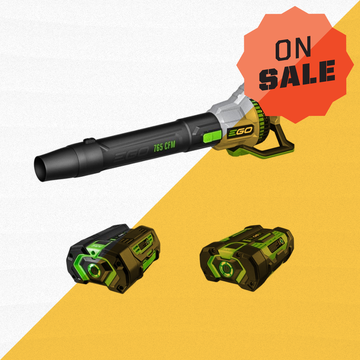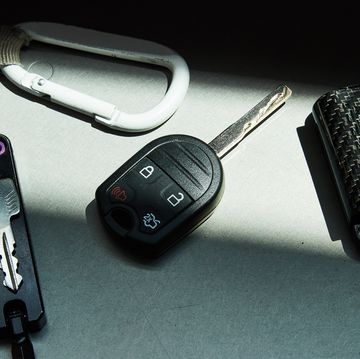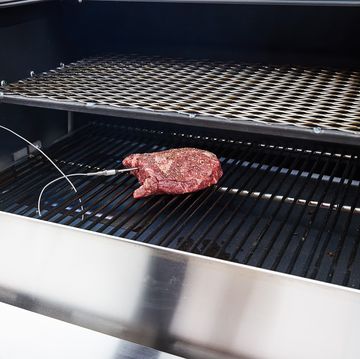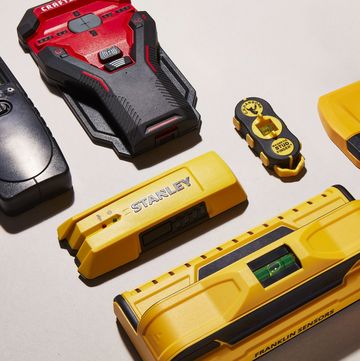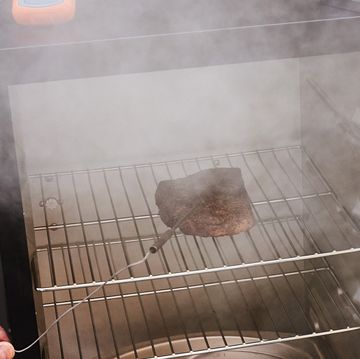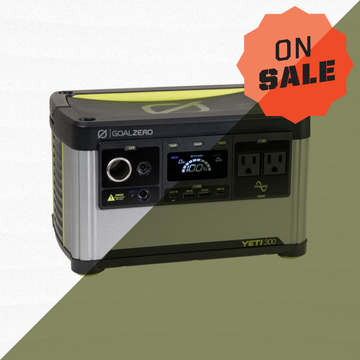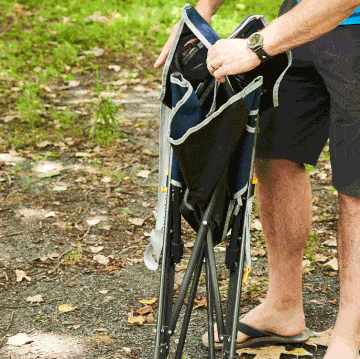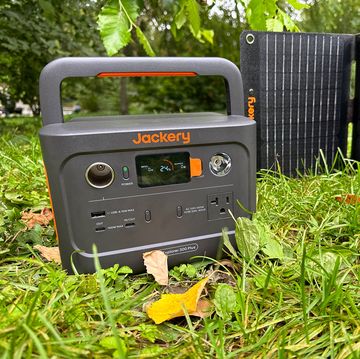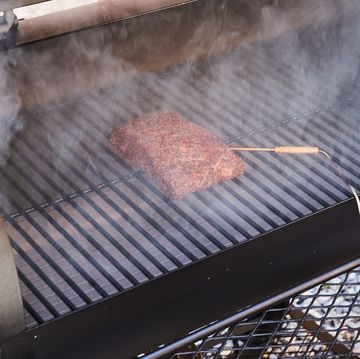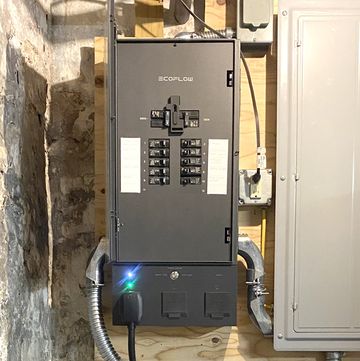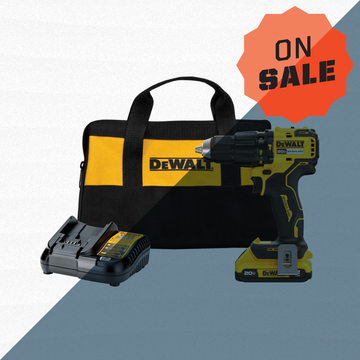Whether stashed by Captain Kidd or as a plot point in The Goonies, buried treasure has a certain allure to it. But while metal detecting is a well-established hobby with thousands of dedicated adherents, it can be difficult to get started. Though easy to use, some metal detectors are made to be easy enough for a child to use, while comparing hobby-grade gear can feel confusing and overwhelming.
Whether you want to dig for gold like a prospector or spend hours combing the beach with your fun new machine, there’s a large range of detectors out there, many of which are optimized for different finds and different terrain. After speaking with some experienced users, we’ve compiled a list of the best metal detectors for everyone, from first-time users to aspiring explorers.
The Best Metal Detectors
- Best Overall: Minelab Vanquish 440
- Best Value: Garrett Ace Apex
- Best for Beginners: Nokta Simplex Ultra Metal Detector
- Simple and Portable: Garrett Ace 300
- Best Expert Upgrade: Minelab Equinox 800
The Experts
Steven T. Wright: As a longtime nerd and technology writer, I’ve covered computers and tech products for almost 10 years at publications like PC Gamer, Ars Technica, and Polygon. To assemble this guide, I relied on the expertise of two seasoned metal detecting experts who have decades of experience in the field. I also relied on insights and recommendations from online guides, as well as reviews from both experts and users.
Stan Ross started metal detecting in 1971. In 2012, while living on the beachfront in Seal Beach, CA, he joined The Ring Finders, a directory of metal detecting specialists that help people find lost items for a small fee. He’s helped hundreds of people reclaim their lost keepsakes and sentimental items. Finding lost items for people has become a passion for him and a way to use his years of metal detecting experience.
Jeff Lubbert has been an avid metal detector since 1980 and joined The Ring Finders in 2010. He was named “Ring Finder of The Year” in 2011. In his decade-plus of service, he’s returned over 200 items to their owners, with a total estimated value exceeding $900,000. He is an active officeholder in Denver’s Eureka Treasure Hunters Club and the co-host of American Digger Magazine’s Relic Roundup, a weekly metal detecting podcast.
What To Consider in a Metal Detector
Before we talk about how to pick a metal detector, we should quickly explain how they work. Consumer metal detectors have a round head known as the "search coil," which is the part that actually does the detecting. There are two parts to the coil, the transmitter coil and the receiver coil.
When you turn it on, the detector sends an electrical current into the transmitter coil, creating an electromagnetic field that reaches down into the ground when the coil is held perpendicular to it. The magnetic field causes metal objects underground to give off their own magnetic fields, which the detector coil can read. The detector can determine how far underground an object is based on the relative strength of the opposing magnetic field.
Many detectors can also determine what kind of metal they’re detecting (within limits) by measuring an object’s phase shift, or the time it takes for the object to react when the transmitter coil changes its current. This technique, called “discrimination” can help you tell the difference between treasure and trash: That said, our experts are quick to note that discrimination is an imperfect technology, and it’s best not to always take it at its word.
How We Selected The Best Metal Detectors
Most of the metal detectors in this guide were recommended by our experts based on the factors above. We also sifted through dozens of product listings, reviews from consumers and experts, as well as enthusiast guides from MetalDetector.com, UnderCoil, and more.
We looked to highlight a wide range of detectors to suit a variety of needs, from beginners looking to dip their toe in, to hobbyists looking for an upgrade. No matter where you stand, we have you covered.
Our Full Metal Detector Reviews
The Minelab Vanquish 440 offers a tremendous amount of functionality for less than the cost of some less powerful VLF detectors. For about $300, it’s a little more expensive than true entry-level models, but it offers a lot of features that enthusiasts look for.
Its four find modes support all different types of terrain, from turf to fields, and its multi-frequency technology allows it to search saltwater beaches without any problems. You can set and save your own frequency settings to figure out what works best for your area and search style.
Perhaps best of all, it weighs only 2.6 pounds. The Vanquish 440 is a true hobby-grade machine that you can grab for a great price.
Lubbert called the Ace Apex one of the best value machines on the market. The flagship of Garrett’s Ace detector line, the Apex has a large backlit display and six detection modes, including specific finder settings for coins, US coins, jewelry, relics, and a custom setting.
The most interesting option is its “iron audio” feature, which helps you identify complex iron objects that you probably don’t want to dig up, such as bottle caps. Likewise, the notch discrimination feature lets you filter out certain frequencies if you’re trying to avoid metal trash.
The Garett Ace Apex is priced for knowledgeable enthusiasts, so it isn’t exactly cheap—you may notice that it costs more than our Best Overall pick— but you’re getting a lot of detector for the price, which makes it a great value. For a veteran hobbyist or a pro, it’s a great bargain.
One pro tip if you pick one up: Make sure to install the latest firmware update, as reviewers say it really improves the machine’s performance in the field.
For years, the Nokta Simplex has been the gold standard for beginner-friendly metal detectors, and this new Ultra model continues that legacy. With six search modes, a backlit screen, and notch discrimination, it doesn’t require much fiddling to get it set up. That said, it’s a powerful machine that works well in a variety of conditions.
Those six settings include two multi-tone modes that allow you to use its discrimination to determine what exactly you’re detecting without even looking at the menu, which is a big plus. It’s also waterproof up to 16 feet, which is quite impressive for a model in its price range, making it especially good for freshwater conditions.
Because it is a VLF model, the Simplex Ultra is not as effective on saltwater beaches or mineralized soil as the more professional detectors on our list. As a whole, though, it punches above its weight, making it the perfect machine for anyone interested in learning the ropes of metal detecting.
We name this pick as a great option for beginners due to its simplicity and ease-of-use, rather than its price tag. Indeed, $500 is a lot to spend on a new hobby you may not be sure you'll keep practicing. On the other hand, if you think there's a good chance you'll stick with metal detecting, spending the extra money on a model that's easy and rewarding to use could be the difference that keeps you going back out rather than spending less money on a machine that's challenging to use.
Considered an "old reliable" by hobbyists, the Garrett Ace 300 is an entry-level metal detector with meat-and-potatoes features. It has a large screen, a water resistant coil, and five search modes suitable for a variety of terrain, including dry beaches. It also has better pinpointing and iron identification modes than several other models in its price range.
Given its relatively low price, it shouldn’t come as a surprise that the Ace 300 lacks some of the finer flourishes found on premium detectors, such as a backlit screen and specific water resistance. Its default coil is also only 10 inches, though you can upgrade it with a larger one. Garrett is a name that detectorists trust, so it’s an easy recommendation to give to new hobbyists who aren’t too concerned about fancy bells and whistles.
Described by Ross as the best option for the “dedicated enthusiast,” the Minelab Equinox 800 is a multi-frequency detector capable of doing almost anything you’d want, especially at the beach. Its coil can pick up metal on wet sand, even while wading in saltwater.
Its four detection modes can find coins, jewelry, “relics,” and even gold nuggets on the most mineralized soil. Though it has fewer modes than some similar detectors, such as the Vanquish 440, a machine like the Equinox will likely find more metal and at a greater depth.
Ross uses the Minelab Equinox 800 for many of his jobs, and he’s used it while wading up to his neck in the ocean. Though it is lighter than most detectors, the fixed shaft length may make it hard to carry around, and reviewers say the length may make it hard to use for anyone shorter than 5-feet-6-inches. At double the price of our beginner and best overall picks, the Equinox 800 is definitely made for a discerning detector fan with a lot of experience.
If you’re interested in dipping your toe in the world of underwater metal detecting, you should take a look at Nokta’s “The Legend” waterproof detector. It’s up there with the Minelab Equinox 800 as one of the most recommended detectors for beaches and shallow water in the detector community. It’s far more affordable than the Equinox, though, and more beginner-friendly.
With four different detect modes, simultaneous multi-frequency scanning, and robust waterproofing, it's made for both freshwater and saltwater conditions and is an attractive mid-range option for those who are looking to spend a lot of time getting their ankles wet at the beach.
The Minelab Excalibur II is designed for hardcore enthusiasts who want to take a metal detector on their snorkel or (more likely) scuba dive. Equipped with BBS multifrequency technology designed specifically to detect in saltwater or mineralized conditions, the Excalibur 2 detects in 17 frequencies simultaneously. (For comparison, the above Vanquish 440 scans on just five.)
It’s also a powerful piece of gear on land, though it’s heavier than most multi-frequency detectors, so it may not be the best choice out of the water. It also lacks the large screen you’ll find on other models: Instead, you control it with rotary dials that let you control its two detection modes.
The Excalibur II was created and optimized for a specific scenario. If you’re treasure diving, this is one of the best options on the market. If you’re looking for something to use at home and bring on the occasional underwater excursion, it may not be the best choice.
If you want to bring a metal detector underwater, but you don’t have the budget for a high-end machine like the Excalibur II, the Nokta Makro PulseDive is a solid alternative for beginners. The PulseDive is what detectorists call a "pinpointer," which experts use to determine the precise location of a target after getting a reading with a larger, wide-ranging detector. While it doesn’t have the range for deep sea diving on its, it can still pick up underwater treasures in shallow water.
It isn’t a perfect experience. Since it’s a pulse induction detector, the PulseDive has no discrimination, so it can’t filter out common metals like iron from the gold you might hope to find. Though it can’t compete with a full detector, it is far more waterproof than many machines that cost more than double its price. Plus, even if you buy a higher-end detector later, our experts recommend having a good pinpointers like the PulseDive so you don’t waste time digging in the wrong place, so it’s a win-win. Bring it along on a snorkel, and you’re bound to have a good time.
Another machine that got high marks from both of our experts, the XP Deus II is the ultimate multi-frequency metal detector, with a price tag to match. Lubbert says the Deus II has the edge over several other detectors he loves in terms of speed and versatility. It features a whopping 12 different detection programs for every conceivable terrain, and has an additional 12 open slots for custom scans. It also has collapsible stems, so it’s more portable than many other detectors in its class.
It also comes with a wireless remote control that lets you adjust settings on the fly, and you can fit it with a special plug to bring it underwater. The Deus II is rated to dive to 66 feet, making it suitable for some underwater expeditions, wet beaches, and mineralized soil. It’s the ultimate upgrade for a veteran, despite its sky-high price tag.
Q+A With Our Experts
Steven T. Wright is a freelance writer based in Miami, FL. He has been a full-time writer of various things for around a decade, especially long-form features about tech and digital culture. He enjoys spending time with his wife and cat, hiking, and reading weird fiction. You can follow him on Twitter @MadCathedral.
Stan Ross is a hobbyist metal detector and member of the Ring Finders, a collective of veteran enthusiasts that help people find lost items. After searching beaches, parks, and the ocean with his metal detector for over 50 years, he knows as much about the hobby as anyone could.
Jeff Lubbert has been an avid metal detector since 1980 and joined The Ring Finders directory in 2010. He is an active officeholder in Denver's Eureka Treasure Hunters Club and the co-host of American Digger Magazine's Relic Roundup, a weekly metal detecting podcast.
